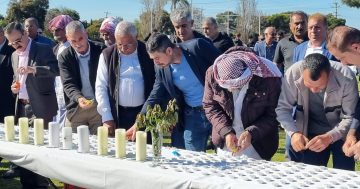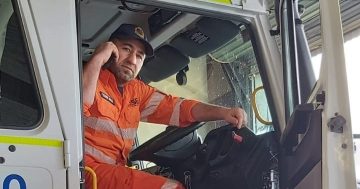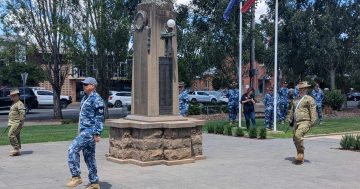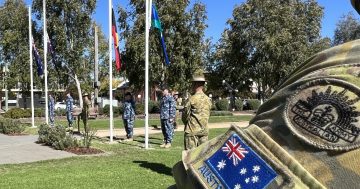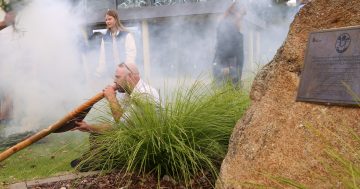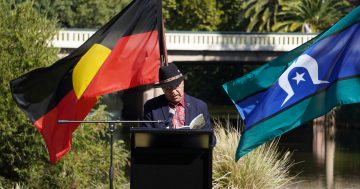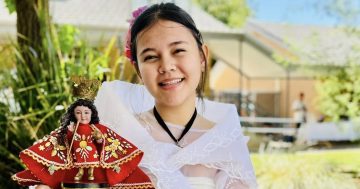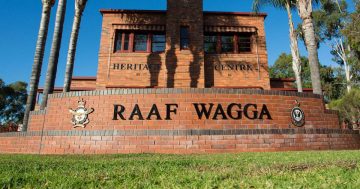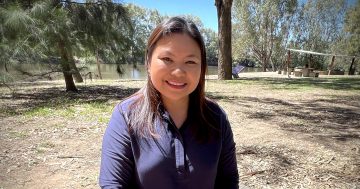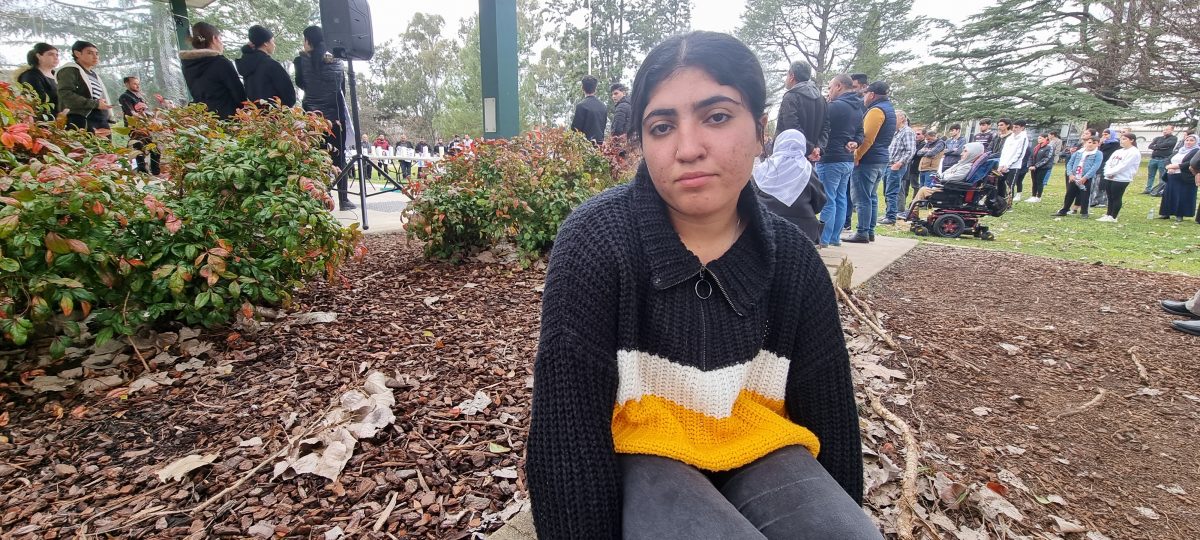
Rozaliya Hasan, 15, spoke on behalf of the Yazidi community on Black Day to commemorate the lives lost in the genocide by Islamic State (ISIS). Photo: Shri Gayathirie Rajen.
The Yazidi community of Wagga gathered in Victory Memorial Gardens on the eighth anniversary of Black Day to honour the thousands of lives lost in the genocide perpetrated by Islamic State (ISIS).
Hundreds of Yazidi residents started their memorial service on 3 August at the Multicultural Council office and walked down the main street to the Memorial Gardens, holding signs to explain the commemoration.
Community members then gathered to light candles in memory of the lives lost during the genocide.
ISIS launched an assault on the Yazidi community of 400,000 people in northern Iraq in August 2014. Thousands were shot, beheaded or burned alive. Nearly 7000 women and girls were kidnapped and forced into sex slavery.
Rozaliya Hasan spoke passionately about the plight of her community because of the genocide.
“There isn’t any support for the people who have returned to their homes and those who are still living in camps,” said Rozaliya.
“Many Yazidi families have lived in the camps under deplorable conditions with no support for almost eight years.
“Hundreds of children and teenagers are growing up without education.”
Rozaliya thanked the Red Cross and Multicultural Council of Wagga for giving the displaced Yazidi people a new beginning in Wagga.
“We have established ourselves in Australia and are grateful to the government for supporting the Yazidi people’s journey to Australia.
“As the Yazidi community, we look forward to giving back to Australia in as many ways as possible.
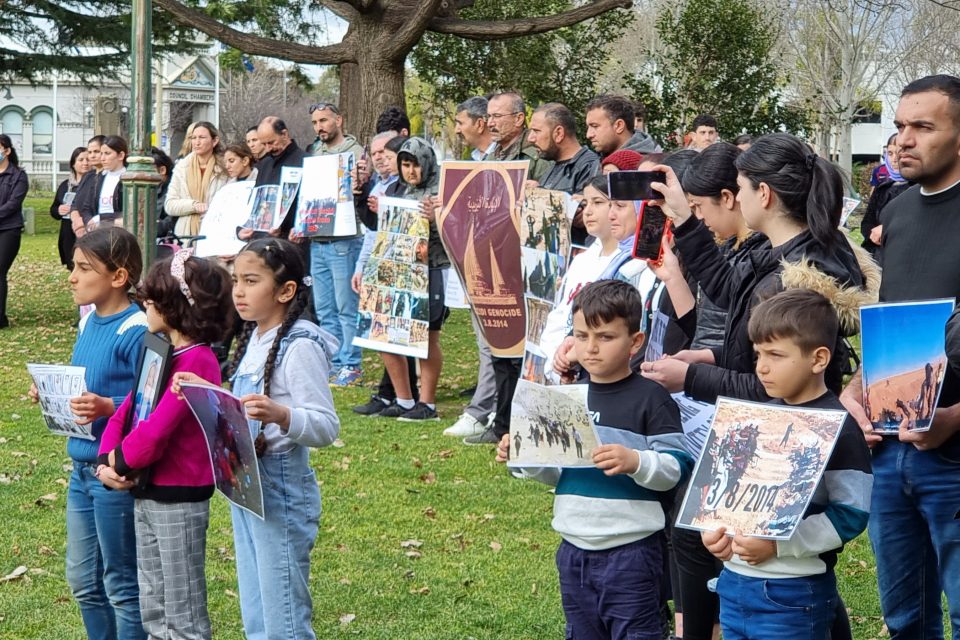
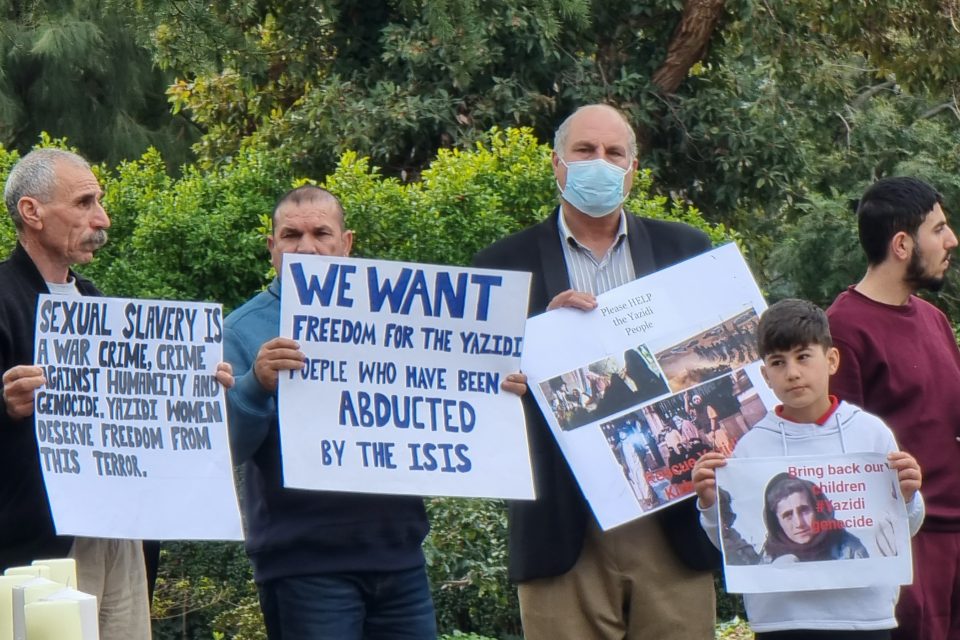
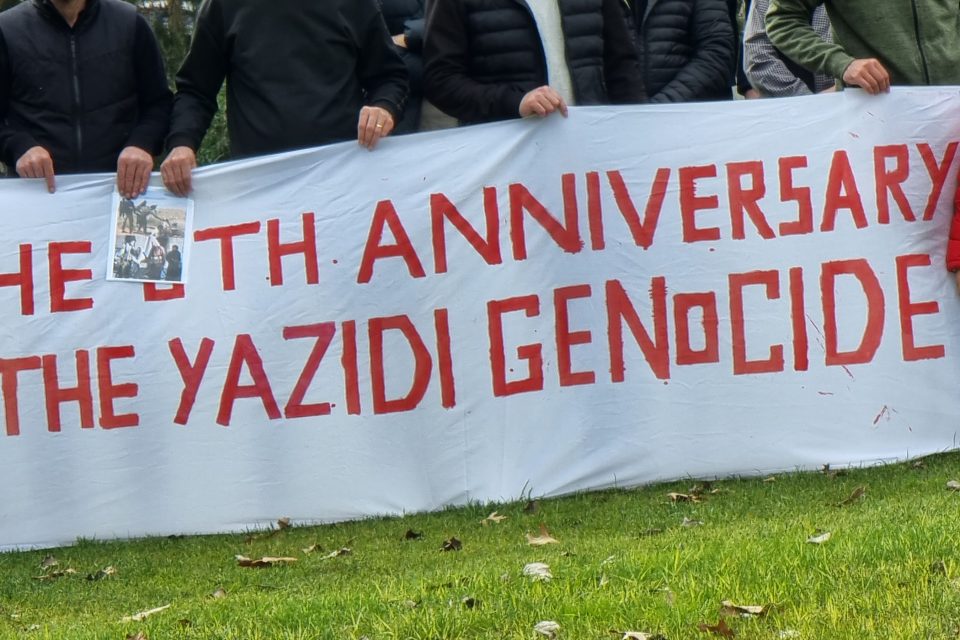
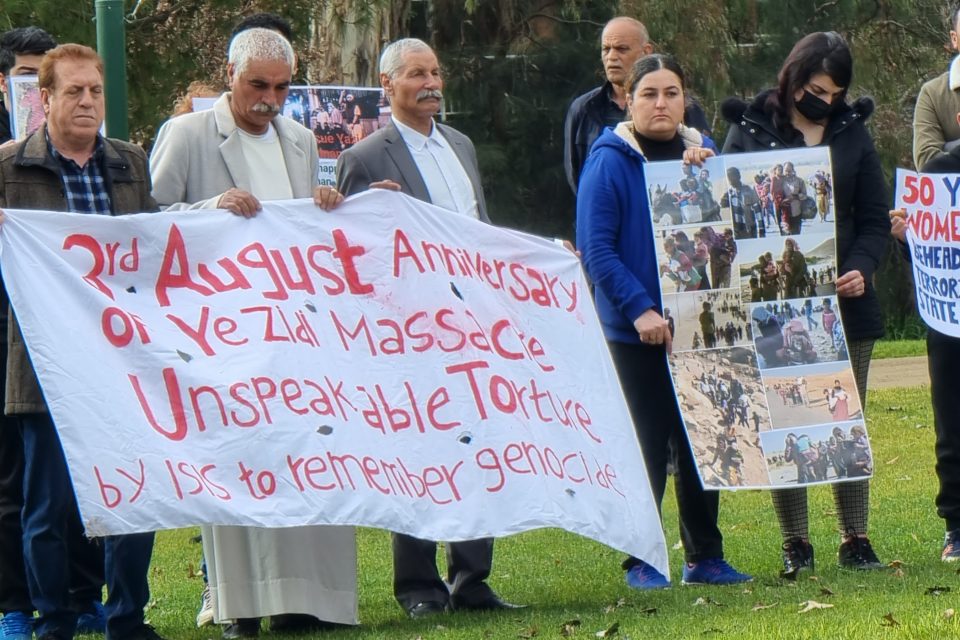
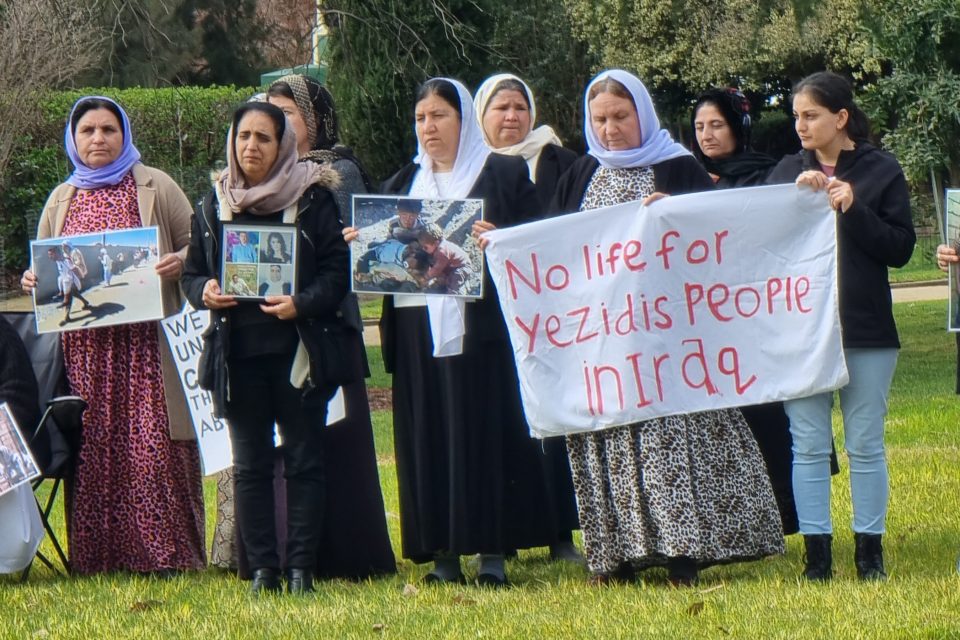
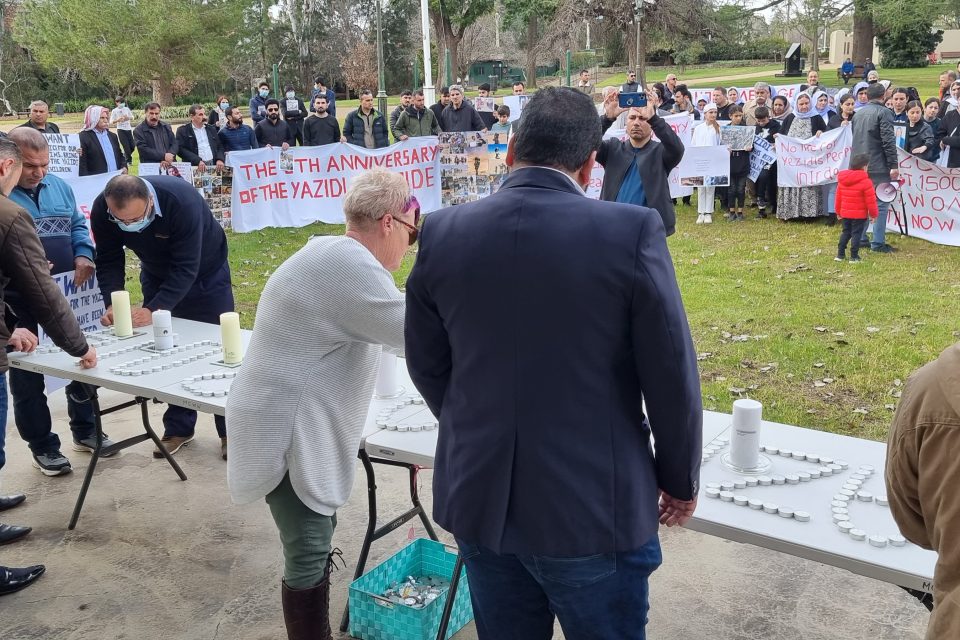
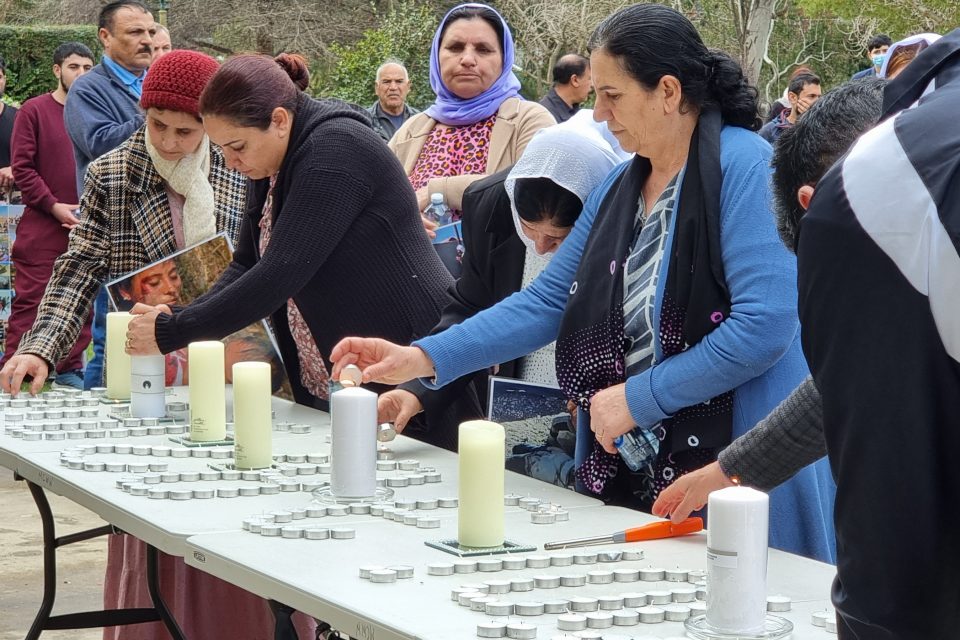
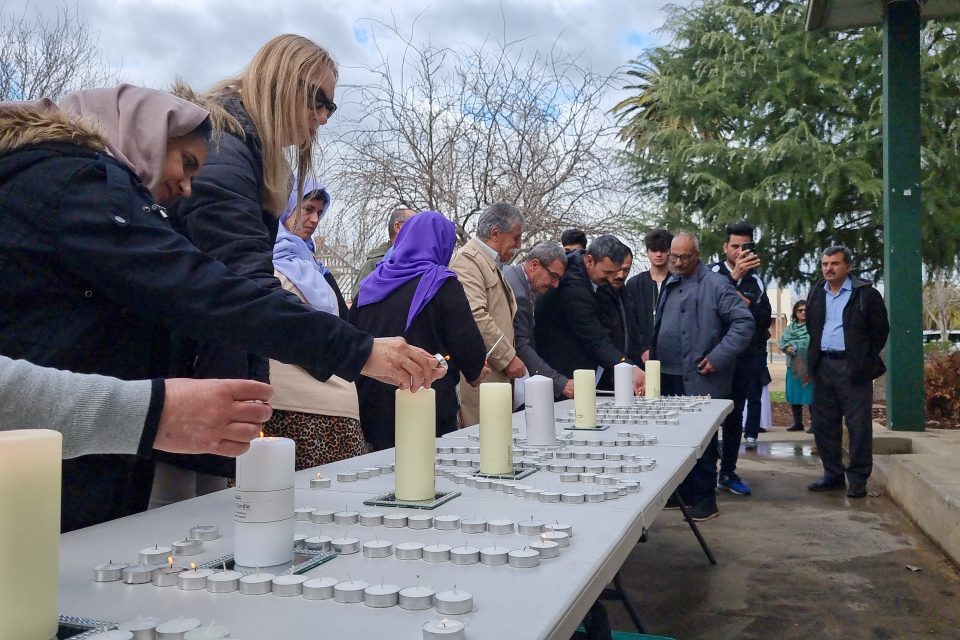
“We thank the volunteers for introducing us to the Australian way of life and thank the teachers who support our education, learning and wellbeing.”
Rozaliya is grateful for the opportunity to speak on behalf of her community and her country.
“It makes me feel like I can do anything for my people and I hope others get to hear our story.”
Multicultural Council of Wagga CEO Belinda Crain said Black Day is a sad day for the community, but the Yazidi are extremely resilient.
“They have made Wagga their home and contribute at all levels within our community,” said Ms Crain.
“Every single Yazidi in Wagga have suffered and lost someone.”
Ms Crain said the Multicultural Council met with the elders of the Yazidi community and then decided to walk down the main street of Wagga for the first time to commemorate the anniversary of the genocide.
“People stood to the side, asked questions and were reading the signs, and I think that gave more knowledge to the everyday person.”
She said Wagga was the first settlement area for the Yazidi people who started settling into the community in 2016.







